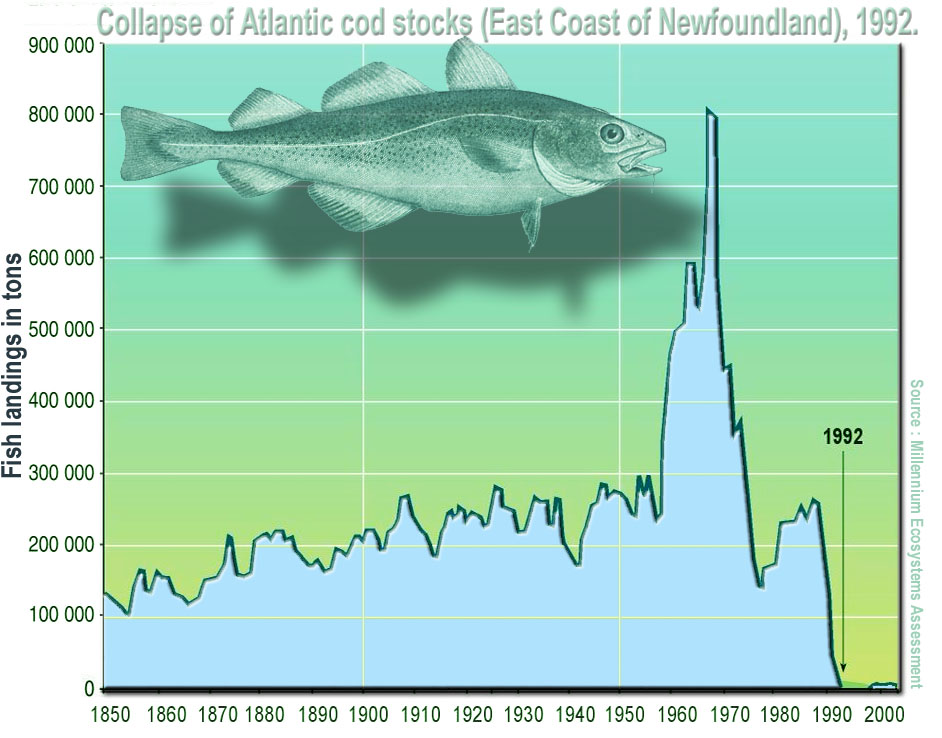givewell.org makes carefully research recommendations for your charity dollars. If you’re wondering what the most effective use of your charity dollars are, I strongly recommend reading their recommendations. On of the charities they recommend is the Schistosomiasis Control Initiative (SCI).
Interestingly, schistosmiasis is increasingly prevalent partly due to the decline of stocks of the fish that eat the snails that carry the disease-bearing parasite.
Overfishing is a classic example of a tragedy of the commons. It is rational for each individual fisherman to do everything he can to maximise his haul, but eventually a tipping point can be reached. In 1992 the stock of North Atlantic cod collapsed completely. The Canadian government issued a moratorium on any further cod fishing. A 500-year old industry destroyed itself,tens of thousands of people lost their jobs, and twenty years later the fish stock has only recovered to ten percent of its original size.

It seems to be a tenet of all economic discussions that ‘growth’ is an unqualified good thing. We need, however, to understand that growth in production is the same as growth in consumption. As the chart above shows, the cod fishing industry experienced growth for nearly two hundred years. But in this case, ‘growth’, meant ‘extracting more and more fish from a limited supply every year’. Eventually the extraction rate surpassed the ability of the fish population to replenish itself, and the industry and ecosystem collapsed.
Unlimited, unbound growth is neither possible nor desirable. Our global economy must, eventually, transition to a model of sustainability rather than growth. I’ve discussed earlier the logical endpoints of a relentless focus on growth.
It’s time to figure out what a genuine ‘circular’ economy would look like. I’m thrilled that people like Ellen MacArthur are taking on this challenge.